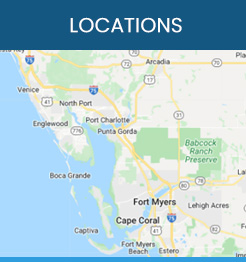Elbow Surgery Specialist in Fort Myers, FL and Port Charlotte, FL
Elbow surgery may be needed for severe or persistent tennis elbow or other elbow conditions that are not treatable by non-surgical treatments. Elbow surgery is one appointment away. At Florida Hand Center, our mission is to provide optimal hand and arm care using various treatment techniques specific to your needs. For more information, contact us or request an appointment online. We have convenient locations in Fort Myers, FL, and Port Charlotte, FL.


Table of Contents:
How long does it take to recover from elbow surgery?
Is elbow surgery a major surgery?
What happens if you move your hand too soon after elbow surgery?
Recovery time after a surgical procedure depends on numerous factors, including the type of surgery, the extent of the injury or condition, and the aftercare involved. For example, a common elbow problem called lateral epicondylitis, also known as tennis elbow, can be treated non-surgically and surgically. Generally, surgical treatment for Tennis Elbow yields inconsistent results and is therefore left as a last resort response. Surgery is only recommended when you have experienced symptoms for longer than six months, have had no positive response to nonsurgical treatments, and consider the pain incapacitating.
Two types of surgery may be performed, open surgery, which is extensive, and arthroscopic surgery, which is minimally invasive. Regardless of which you receive, you should expect to wear a splint afterward for a week or more, followed by an exercise regime recommended by a physical therapist. Recovery may take 6 to 12 weeks before symptoms disappear, though vigorous exercise with the concerned elbow may need to be postponed for 4 to 6 months. Another common elbow concern we see is Cubital Tunnel Syndrome.
Here, compression against the ulnar nerve in the elbow causes pain, tingling, and numbness, the same feelings you experience after a blow to the “funny bone.” Again, two different surgeries may be performed to treat this issue. Submuscular ulnar nerve transposition is extensive, invasive, and usually not the most necessary treatment. Endoscopic ulnar nerve decompression is a less invasive treatment with minimal downtime. Recovery is expected to take 3 to 6 months for submuscular ulnar nerve transposition, whereas endoscopic ulnar nerve decompression is expected to take several weeks.
Suppose you have an endoscopic ulnar nerve decompression performed at the Florida Hand Centre. In that case, you will not be put under general anesthesia and can instead expect mild sedation delivered through an IV and a regional block applied to the affected arm. You’ll be able to use your hand for delicate tasks immediately and have a follow-up appointment scheduled for a week after your procedure to consult with a physical therapist.
The distinction between major and minor surgeries is decided by the extent of the incision, tissue damage, recovery period, and risk for complication. In this sense, our elbow surgeries procedures are mostly considered minor surgery.
Arthroscopic and endoscopic surgeries are minimally invasive and do not require general anesthesia to be administered. Open surgeries and submuscular ulnar nerve transposition are considered more major as the incisions are more extensive, and the procedure can be more damaging than scopic surgeries.
Dr. Stephen L. Helgemo believes no surgery of the arm, or the hand should leave you incapacitated, nor should you feel the need to restrict movement out of fear of reinjury. In most cases, you should expect to leave the operation with a bandage, splint, brace, or cast, which will immobilize your joints. However, it would be best to continue moving your fingers throughout the recovery process to promote healing and return to a full range of motion, free of stiffness. After your surgery, you will likely have a follow-up consultation scheduled.
During this visit, splinting or casts may be removed or adjusted, and an occupational or physical therapist will implement an exercise regime. You must follow the recommended routine and avoid specific movements that could stress the recovery process. Any movement required for daily living activities, such as dressing yourself or maintaining personal hygiene, should not be restricted.
Actions that should be postponed until your doctor says otherwise include: lifting or carrying objects over a few pounds, repetitive activities, strenuous gripping, use of vibratory machinery, and generally any heavy labor or vigorous action, such as working or sports engagement. We recommend you speak with one of our providers to fully understand the dos and don’ts that apply to your specific situation.
We are dedicated to our patients and strive to diagnose and treat all in the same visit. If you have any urgent or not concerns, please call us. We will likely save you time and money on unnecessary emergency room visits. We serve patients from Port Charlotte FL, Fort Myers FL, Punta Gorda FL, Estero FL, Murdock FL, Charlotte Harbor FL, Harbour Heights FL, Cape Coral FL, Lake Suzy FL, and Solana FL.


Additional Services You May Need
▸ Carpal Tunnel Syndrome
▸ Basilar Joint Arthritis
▸ Trigger Finger
▸ Dupuytren’s Contracture
▸ DeQuervain’s Tendonitis
▸ Ganglion Cysts
▸ Cubital Tunnel Syndrome
▸ Lateral Epicondylitis
▸ Small Joint Arthritis
▸ Wrist Pain
▸ Scaphoid Fracture Treatment
▸ Flexor Tendon Injuries Treatment
▸ Hand Tumors Removal Surgery
▸ Work Related Hand Injuries







